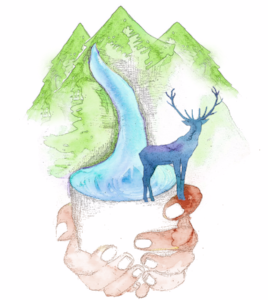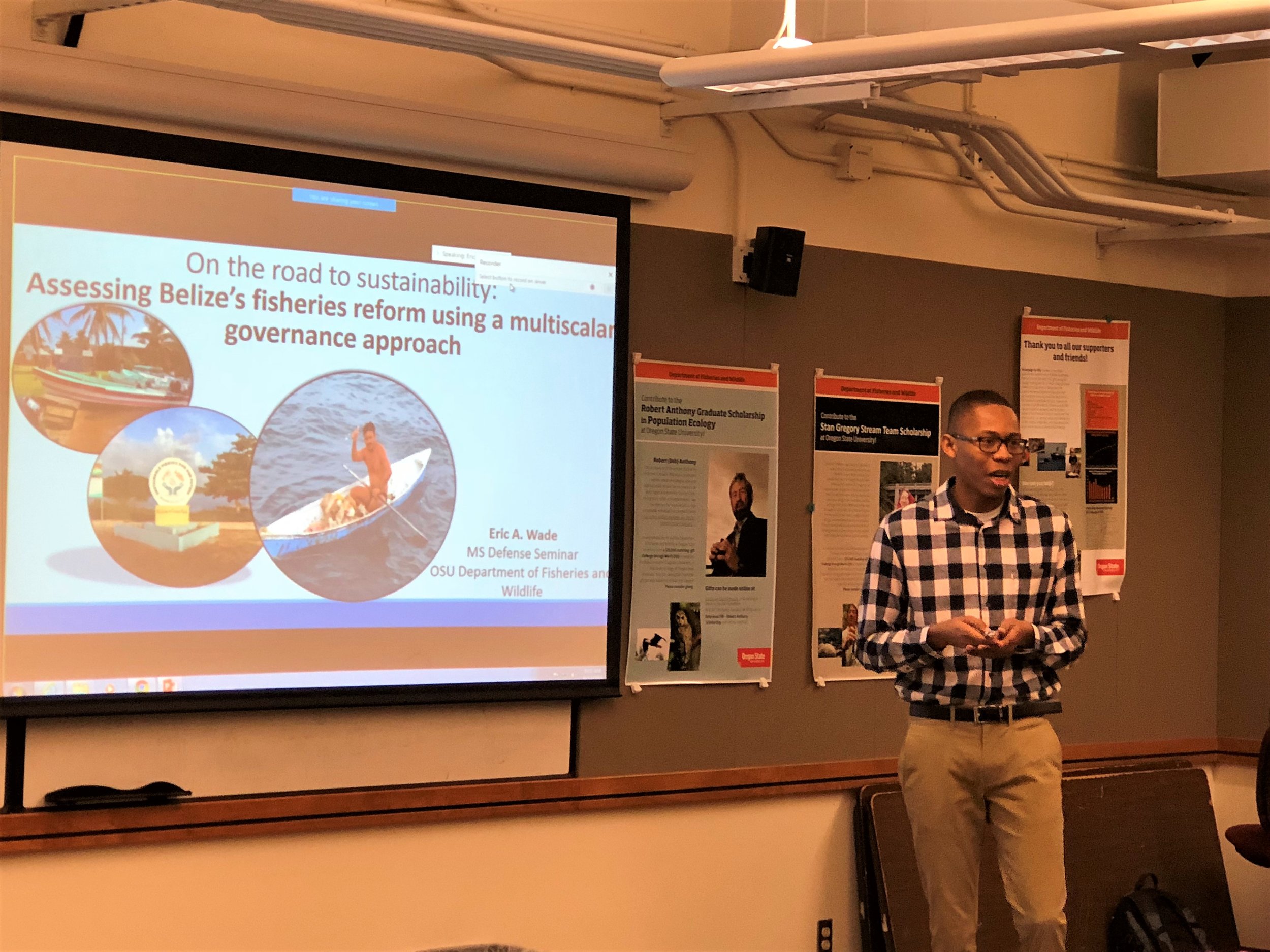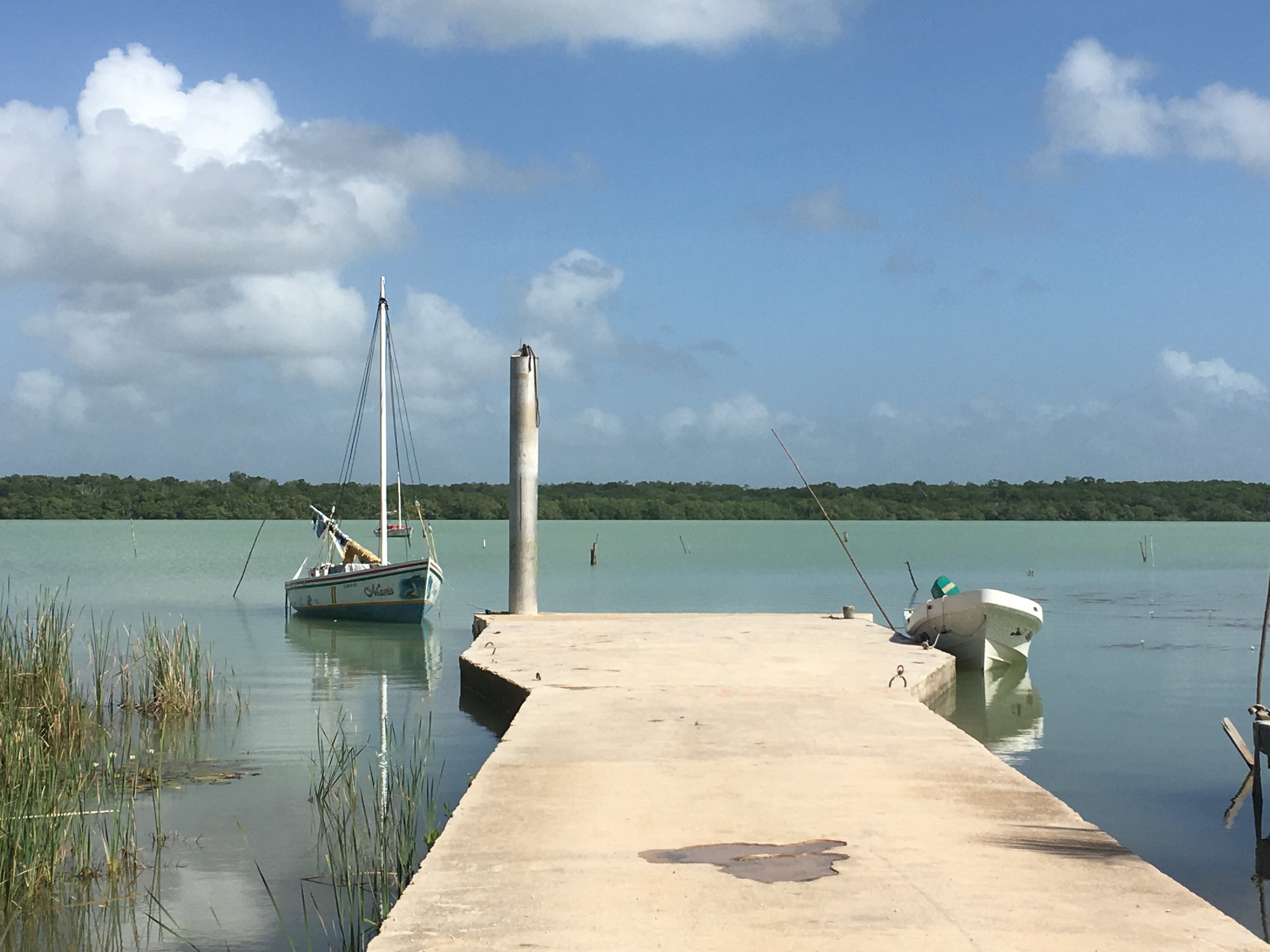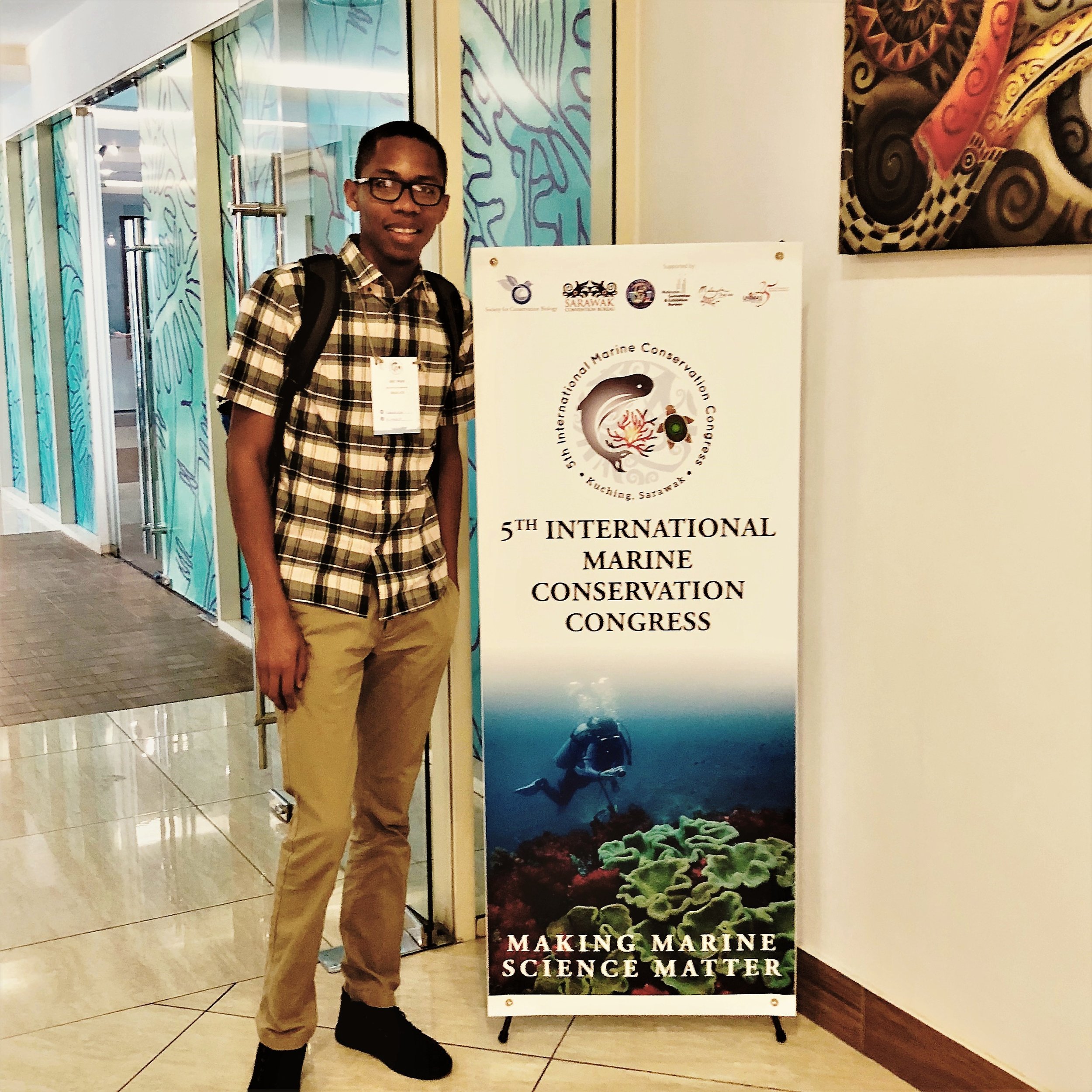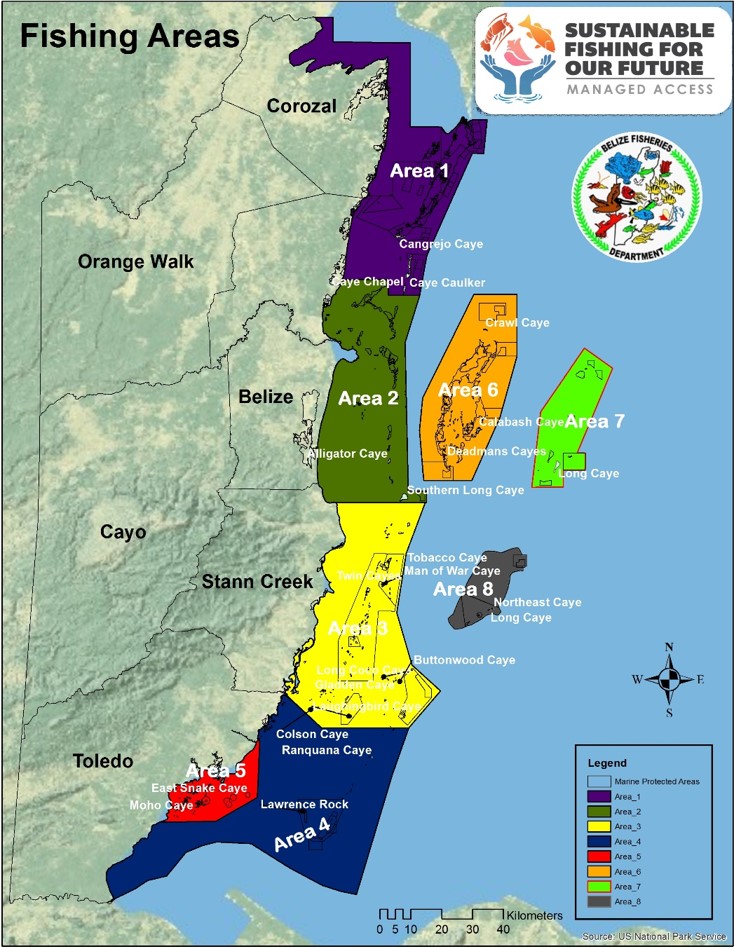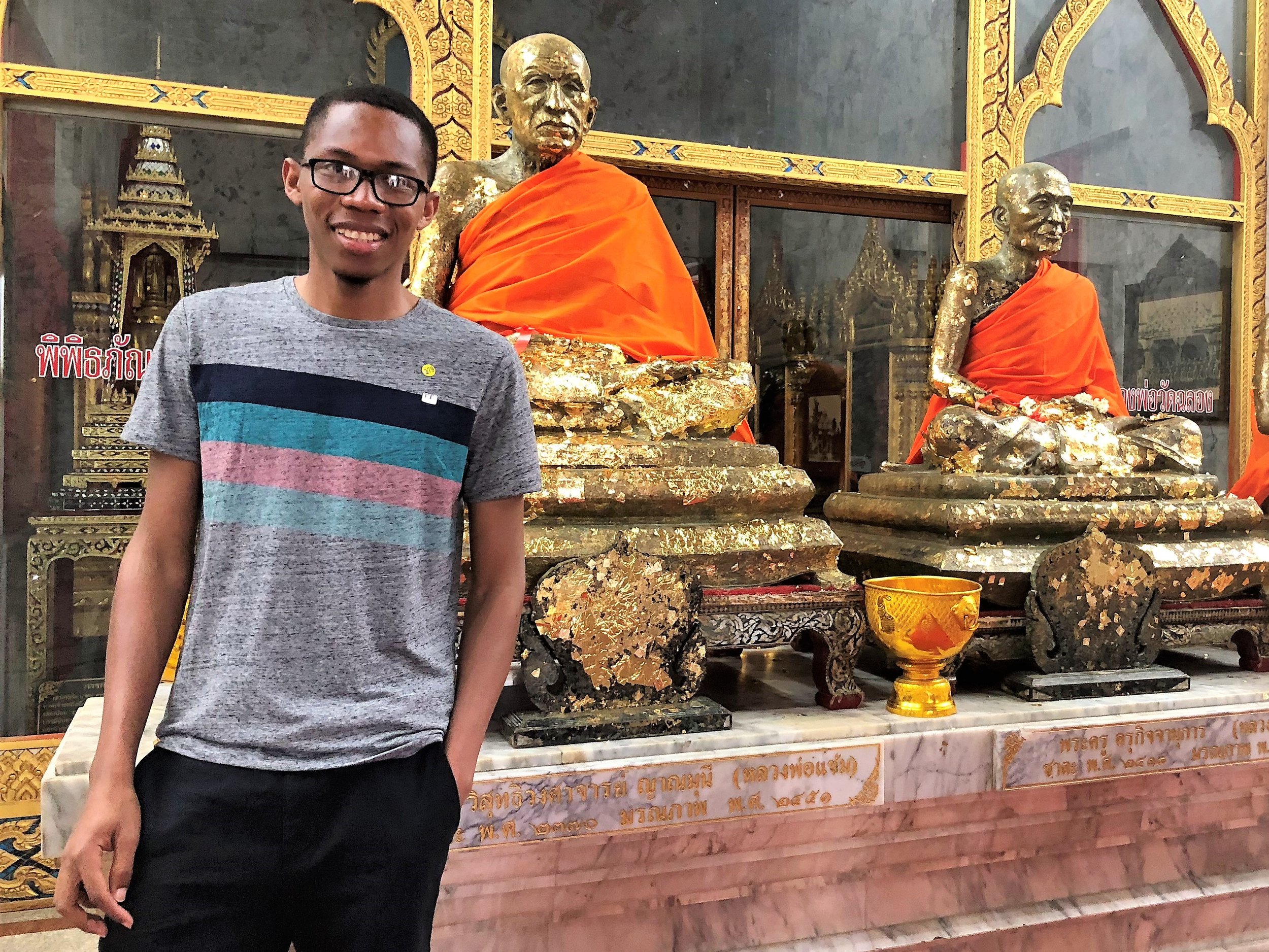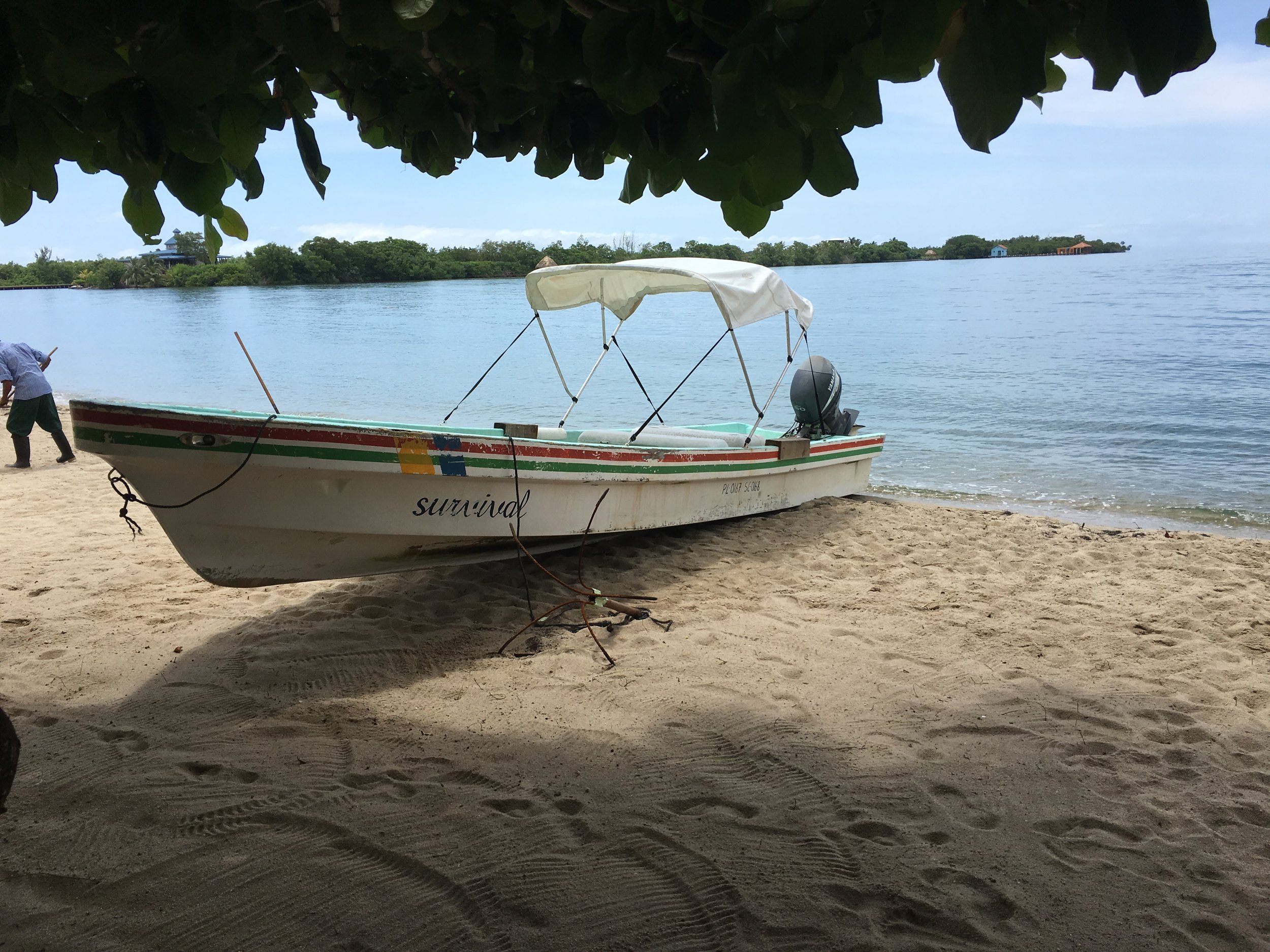Master Wade
Born in Crooked Tree Village, Belize, and a recent master in the field of Fisheries Science and Human Dimensions at Oregon State University, Eric Wade’s research focused on looking at fisheries management policy reform and stakeholder perceptions in Belize using a policy and social psychology approach. In fall 2018, Eric will continue at OSU as a proud Ph.D. student with his work using social psychology and decision making in fisheries management within the Caribbean.
Can you describe what it was like growing up in your hometown?
In my home village, it is primarily all family. My aunts and uncles, I am pretty close to my cousins. It is the definition of “it takes a village to raise a child.” There is a lagoon in our village where we used to hang around and swim around when we were not playing neighborhood-wide cricket tournaments. We are about 45 minutes inland from the coast. Interesting fact, my village is home to the largest concentration of cashew trees in the country. I grew up harvesting cashew nuts, and there is an annual cashew festival outside my house every year.
From your research, why did the government of Belize implement fishing zones?
The government noticed that catch landings was decreasing and destruction of marine habitat was happening along off the coast of Belize. There used to be open access, and now the government created eight zones, and fisherman must choose two of these zones to fish in for life. These zones vary in size, vary in ecosystems, and vary in ecological diversity. The government then implemented these zones to increase stewardship and ownership of the resources by fishers.
What do you see as important takeaways from your research of fishing zones in Belize?
For fishing zones to be effective there needs to be a distribution of rights. Fishers must be more directly involved in the decision-making of the management of these zones. The zones vary in resources, and a key takeaway is that no one perception is the right approach.
What has been a memorable moment for you in the field when conducting your research?
There has been a lot! But two that stand out. One of my interviewees invited me to her house to have tea while we talked about my research. The second one was a four-hour long interview with this guy. His wife kept calling him and calling him, so we had to end the conversation after four hours.
What do you want people to know about Belize that they might not know?
Well, let’s see. Belize is not an island. Belize is not in Africa, and we have the largest living barrier reef in the Western Hemisphere. So, there is about seven to ten different ethnic groups in the country and seven indigenous groups, each with their own language. An interesting fact is that we are currently fighting with Guatemala as they are claiming half our country, and we are potentially looking to take it to the International Court of Justice to settle the claim.
